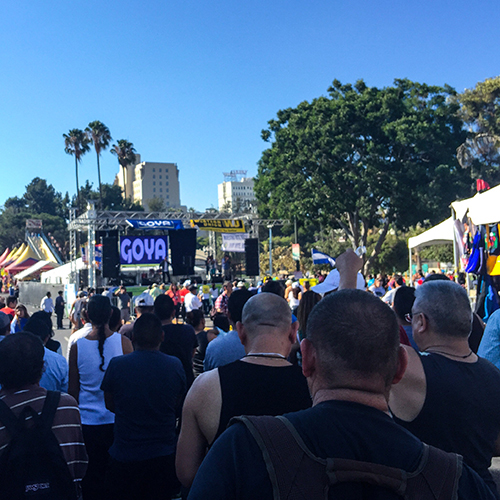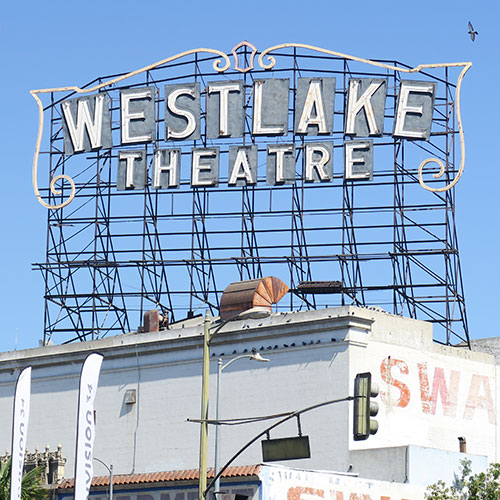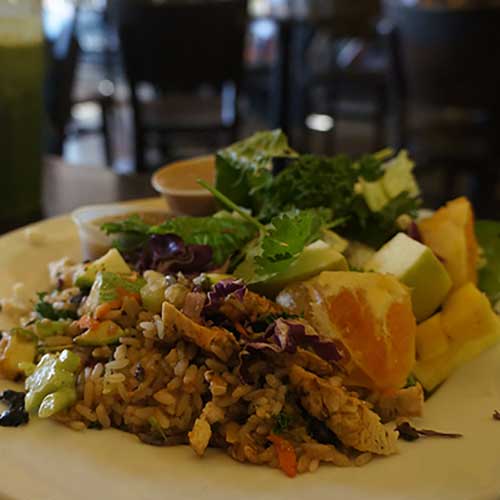
Hunger ends where compassion begins
At the First Church of the Nazarene, the compassion ministry reaches a group of hungry homeless people and gives them physical and spiritual nourishment.
Standing in the front of an auditorium, clutching a worn leather book is a man who, in just two hours, will feed nearly 100 homeless people — both in body and in spirit.
Jesse G. Gonzalez, known to many at the First Church of the Nazarene simply as Brother Jesse, is a volunteer committed to breaking down barriers within and outside of the church.
Gonzalez heads up the food ministry at the church, which consists of giving three hot meals a week in addition to a weekly food pantry.
“We don’t want to overdo it. We provide one hot meal and we have seconds,” Gonzalez said. “Everyone can leave with a full stomach but we never want to get to the point where we provide three hot meals a day because I think we would do a disservice to people because it would enable people.”
On Tuesdays and Thursdays the church opens their doors at 10:30 a.m. After a brief message, often delivered by Gonzalez, lunch is served at 11:30 a.m. On Wednesdays, the church opens at 9:30 a.m. with a message followed by breakfast.
The food comes from a variety of places, but is primarily donations. Doris Cares is one non-profit that donates and delivers food to churches, shelters and directly to the homeless around Los Angeles, including First Church.
“This church is fantastic,” said Jerry Chan, a 12-year volunteer with Doris Cares. “They’re consistent, they have high-quality food and they treat people with respect. Aside from the religious Christian model, they just treat people with respect.”
Chan says that one of the best aspects of the First Church of the Nazarene is the quantity of food they are willing and able to give out each day including sandwiches that the homeless can take with them when they leave.
“To have seconds is very unheard of,” Chan said. “That’s one reason why this church is at the top of my list.”
Gonzalez has been heavily involved with the ministry for four years, but the infrastructure has been in place for nearly 20 years. Now, Gonzalez works with a few other volunteers to run the program including one of the pastors at the church, Rev. Josué Tigüilá. Together the group does everything from checking people in, giving or translating the sermon, serving the food and cleaning up afterwards.
“For me this would be a model,” Gonzalez said. “It’d be wonderful if every church had something like this to bring forth the message of salvation, without forgetting that people have needs now.”
But it isn’t just those who receive food who have had their lives touched. Gonzalez considers the homeless part of his family and he even invited the group to his 25th wedding anniversary party at the church.
“A lot of times if there is a special event and I say, ‘I’m going to invite the homeless people from the food ministry,’ I’ll get some eyebrows raised from the members of the church. And I have to say, ‘You know, brothers and sisters, this is a people that we are here to reach,’” Gonzalez said. “You cannot exclude anyone because they are down on the socioeconomic ladder. We are here and the door is open for anyone and everyone.”
Everyone who works with Gonzalez recognizes that he has a special graciousness and humility.
“What we say in our ministries is live a compassionate life,” Tigüilá said. “Compassion is a lifestyle and that’s what we do here. You can see it in Jesse.”
Gonzalez credits the Lord for bringing him to this specific church. Previously a member of the Church of the Nazarene in San Diego and Honolulu, Gonzalez has been coming to this church since 1985. When he moved to LA, Gonzalez would take walks to exercise and one day stopped at a restaurant on Third Street.

“When I came out I saw the sign that said, ‘Church of the Nazarene,’ so I just came in and here I am going on 32 years later,” he said. “I would say it was an act of God that brought me here. I really believe that.”
When he first came to the church, Gonzalez considered himself a normal member, but his involvement has grown over time. With the food ministry, Gonzalez often shares his own sermon before the meal or translates it from English to Spanish as necessary. He also serves on two church committees and the district advisory board.
“I’m here to be of service wherever they need me,” Gonzalez said. “If they need me to translate a sermon, I’ll do that. If they need me to clean floors and clean windows, I’ll do that.”
Gonzalez says the doctrine is the most important aspect of the church but there are other things that have kept him inspired including the welcoming atmosphere and the commitment to service.
This church has four separate congregations based on language — English, Spanish, Korean and Filipino. Gonzalez is a member of the Hispanic congregation.
“There are so many beautiful things about this church,” Gonzalez said. “There’s the diversity and everyone is welcome here. You want to come to church and glorify God with us, then come through that door.”
Tigüilá came to the church when he was nine years old, just eight years before Gonzalez came and now serves as the pastor of the English congregation. He also appreciates the diversity of the church.
What is a Hope-Net food pantry?
“It gives service to four distinct languages: English, Korean, Spanish and Tagalog. There is uniqueness in that,” he said. “We have the facilities to provide four distinct services at the same time.”
Gonzalez wishes that there were more continuity between the congregations, something he strives to achieve in the future. Although the food ministry has reached out to all of the congregations and expressed their need and desire for help, most of the volunteers hail from the Hispanic congregation. Gonzalez wants the other congregations to be involved not only with the food ministry, but also in brotherhood with one another.
“Cultural barriers hold us back,” Gonzalez said. “I would love to see us as one people and one congregation, but that will come with time.”
Gonzalez has suggested teaching the congregations how to say hello and good morning in each of the four languages represented but admits that there is no easy answer to create a more cohesive congregation. Across languages, the leaders of the church are dedicated to service.
Tigüilá emphasized the special foundation of the Church of the Nazarene, which is being there for people when they need them.
“The church has a big function, and always will, to be the hands and feet of Jesus Christ,” Tigüilá said. “As soon as you forget that and you aren’t part of the community, you become less effective. If you still have that commitment to be the hands and feet of Jesus Christ, then you will always have a way to bless people.”
Tigüilá also expressed his gratitude for Gonzalez’ commitment to blessing someone he comes in contact with everyday, and though Tigüilá sometimes worries about Gonzalez overexerting himself as he continues to age, Brother Jesse is showing no signs of slowing down.
“I want to be consistent because to me these people are like a family and I told them so.”


